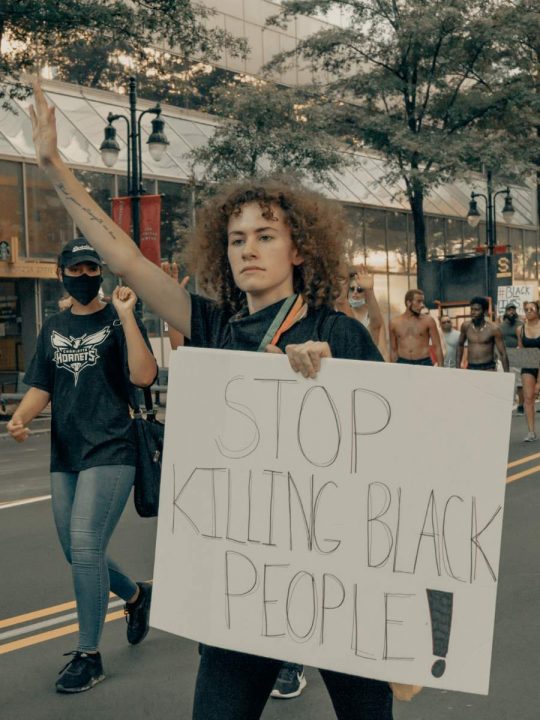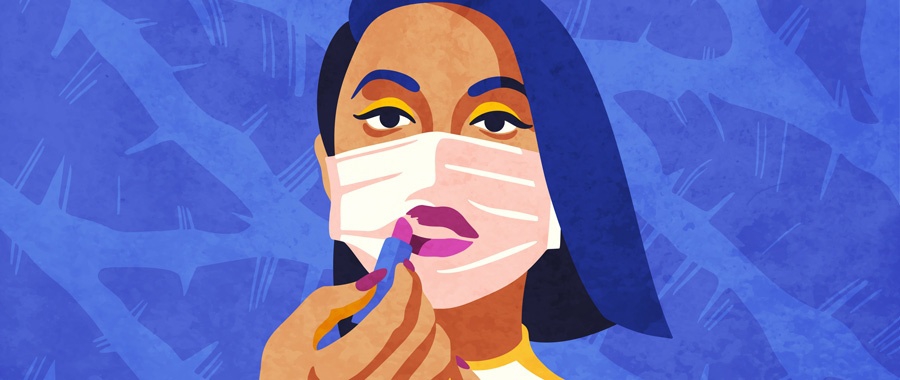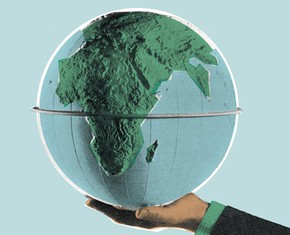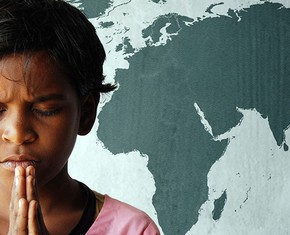The views expressed in our content reflect individual perspectives and do not represent the authoritative views of the Baha'i Faith.
The time we’re living in is ripe with a call for action. People are calling for businesses, organizations, policymakers, and community members to raise the bar in how they advocate for transforming our society. For some, this call for action is newfound; many folks are just starting to accept that the United States has a racism problem and are beginning to accept that they need to take individual initiative to bring about the changes we need.
Although striving to create change is a new endeavor for some people, many others are simply continuing the work we’ve been doing. As someone who has, in my own limited way, been working to dismantle structures of racism and challenge the normalcy of white supremacy in this country while also living in black skin, it can feel frustrating to see a sudden eruption of concern and surprise at the widespread reality of racism.
In a talk in New York City in 1912, Abdu’l-Baha, the son of Baha’u’llah, the prophet and founder of the Baha’i Faith said, “The earth is one nativity, one home, and all mankind are the children of one father. The obstacle to human happiness is racial and religious prejudice, the competitive struggle for existence and inhumanity toward each other.”
More than 100 years later, it feels like Black people have been screaming that there is a fire for generations. Maybe because it was during a pandemic and people were less distracted, or perhaps due to some twist of fate with social media, more non-Black people have realized that maybe there actually is a fire and our cries for help were, in fact, valid all along.

The mix of feelings that come with this new activity around dismantling racism and taking better care of one another is not all bad. Money has been allocated to organizations that work to bring about racial justice day in and day out. Many individuals have also taken to the streets to express that the status quo needs to change, and previously uninformed folks began reading books that may diversify their understanding.
Laws have begun to shift, and some people have stepped down as others have stepped up. Even though I feel frustrated at not having been listened to before, I recognize that this moment in time has brought the possibility for some good changes. The work certainly hasn’t been for nothing.
I have, however, been digging into what my annoyance means. I am learning that when I feel frustrated by something, I should not merely dismiss my feelings in a hurry to resolve the stress. Sometimes when I feel frustrated, I sense a problematic phenomenon that needs to be addressed. In this case, I recognize the reality that many people, — many of whom have good intentions and are rightfully concerned — are hopping on a bandwagon and performing activism rather than actually thinking deeply, creatively, and carefully about how to apply a racial-justice oriented perspective to their lives.
In a recent letter, the National Spiritual Assembly, the administrative governing body for the national Baha’i community of the United States wrote, “Whatever immediate results might come from the current demonstrations, the elimination of racism will require a sustained and concerted effort. It is one thing to protest against particular forms of injustice. It is a far more profound challenge to create a new framework for justice.”
In recent weeks it’s felt like it’s become trendy to proclaim the truth that “Black Lives Matter.” Speaking up and advocating for racial justice is necessary, but we have to be careful that we don’t simply speak up for a moment and confuse that with doing “the work.” Jumping on the bandwagon for true justice is a long process. It is a lifelong journey that requires constantly addressing the many insidious ways that anti-Blackness steals the dignity of human beings; It means looking at not just the police, but all of the systems where anti-Blackness is perpetuated, and then speaking up and allocating material or financial resources to eradicating oppression; It means self-educating and having hard conversations with others; It means facing the ways you’ve participated in or been a bystander, and thorough and persistent self-care if you are a Black person navigating the sudden piqued interest in you and your people.
It does not mean pity or doing things to alleviate your own guilt. It means selflessness with an awareness that our wellness is interconnected in ways even more profound than we may be able to understand. In the book, “Some Answered Questions,” Abdu’l-Baha described “…this endless universe is like the human body, and… all its parts are connected one with another and are linked together in the utmost perfection. That is, in the same way, that the parts, members and organs of the human body are interconnected, and that they mutually assist, reinforce and influence each other, so too are the parts and members of this endless universe connected with, and spiritually and materially influenced by, one another.”
We don’t need people to arise simply because they want to feel better about themselves, or because they want to look “progressive” or “radical.” Instead, we need people to arise for the sake of our collective well-being, with an internal sense of what is wrong and what is right.
For those who are new to working for justice — or who are not directly under attack by anti-Black forces — the quality of the actions you take in trying to address racism matters. Just making an effort is not enough. Instead, we need people to strive for excellence. Another passage in the letter from the National Spiritual Assembly of the Baha’is of the United States reads:
“An essential element of the process will be honest and truthful discourse about current conditions and their causes, and understanding, in particular, the deeply entrenched notions of anti-Blackness that pervade our society. We must build the capacity to truly hear and acknowledge the voices of those who have directly suffered from the effects of racism. This capacity should manifest itself in our schools, the media, and other civic arenas, as well as in our work and personal relations. This should not end with words, but lead to meaningful, constructive action.”
With that in mind, we can’t assume that a much-needed, substantial shift is happening at the core of our culture and our systems. We have learned in the past that “reform” is often simply a reform in the way racism is perpetuated. We all have to be wary of a false sense of progress due to an uptick in the performance of activism. We can’t forget that eliminating racism actually requires the creation of sustainable change.
















Comments
Sign in or create an account
Continue with Googleor